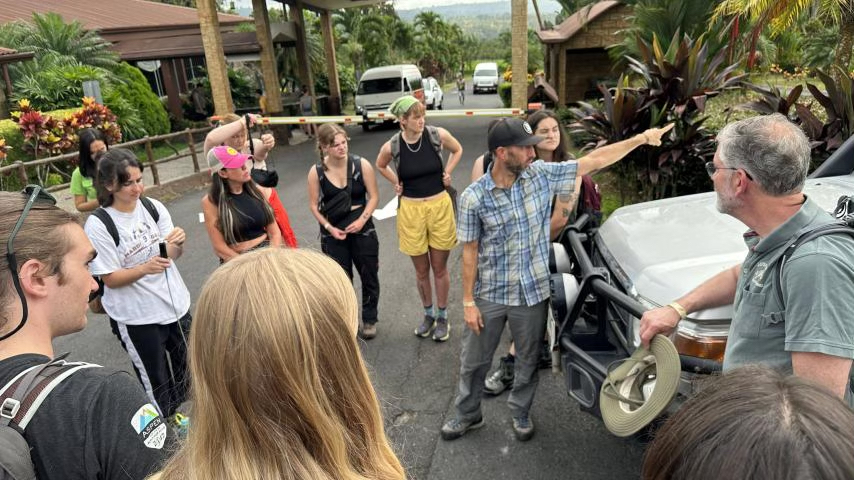
By Grace Farrell
After 92 years of operating as its own department, the Puget Sound geology program is transitioning to working within the environmental science program. Dr. Kena Fox-Dobbs, department chair, says that changes in staffing and student interests prompted the transition. She explained that only two of the five geology professors at the time of her appointment as chair are still in the program, which makes it difficult to keep a variety of classes operating. The other remaining professor, Mike Valentine, has been in the department since 1990.
Before this staff turnover, though, Puget Sound’s geology professors were already considering a shift away from traditional geology, as many geology departments nationwide have broadened themselves to align with a more general Earth science curriculum in the 21st century. Fox-Dobbs says that Earth science is heavily interdisciplinary, which felt appropriate to implement at a liberal arts school like the University of Puget Sound. Then, with staffing changes, Fox-Dobbs and her colleagues realized that implementing this change was necessary to keep the program alive.
One challenge the geology professors anticipate with curriculum realignment is the need for additional staffing. The department predicts that the new Earth and environmental science (EES) major will be popular, which will likely require more professors to help support it. However, Fox-Dobbs remains “relatively positive” about the future of Earth science courses, as “the core good stuff” distinguishing the department will remain.
The 2024-2025 bulletin funnels geology courses into the new EES degree, a BS major being offered within Puget Sound’s environmental studies and sciences department. Interested students are still encouraged to take geology courses within the EES major, and Fox-Dobbs clarifies that student opportunities associated with these courses won’t dwindle as a result of the realignment; geology courses are mostly being reassigned to the Earth studies curriculum.
“We’ve worked hard to build good structures,” Fox-Dobbs says, “and I feel strongly about protecting some of them and that we maintain and build off of them.” These structures include ‘Georney’ trips, which allow students to study Earth science internationally through hands-on exploration; the most recent cohort traveled to Costa Rica in 2023. The department retains a strong research presence allowing large numbers of future Earth science students to get summer research grants, attend conferences, and publish their research. All Earth science classes at Puget Sound will continue to incorporate field trips into their core curriculum. “Geology is about getting out into the natural world, and we’re working hard to make this as accessible as possible,” Fox-Dobbs notes.
Ultimately, Fox-Dobbs characterizes the geology department realignment as a needed response to shifted demands and interests. “Change happens,” she remarks, “and I have tried to lead by responding to change in as positive a way as possible.”
